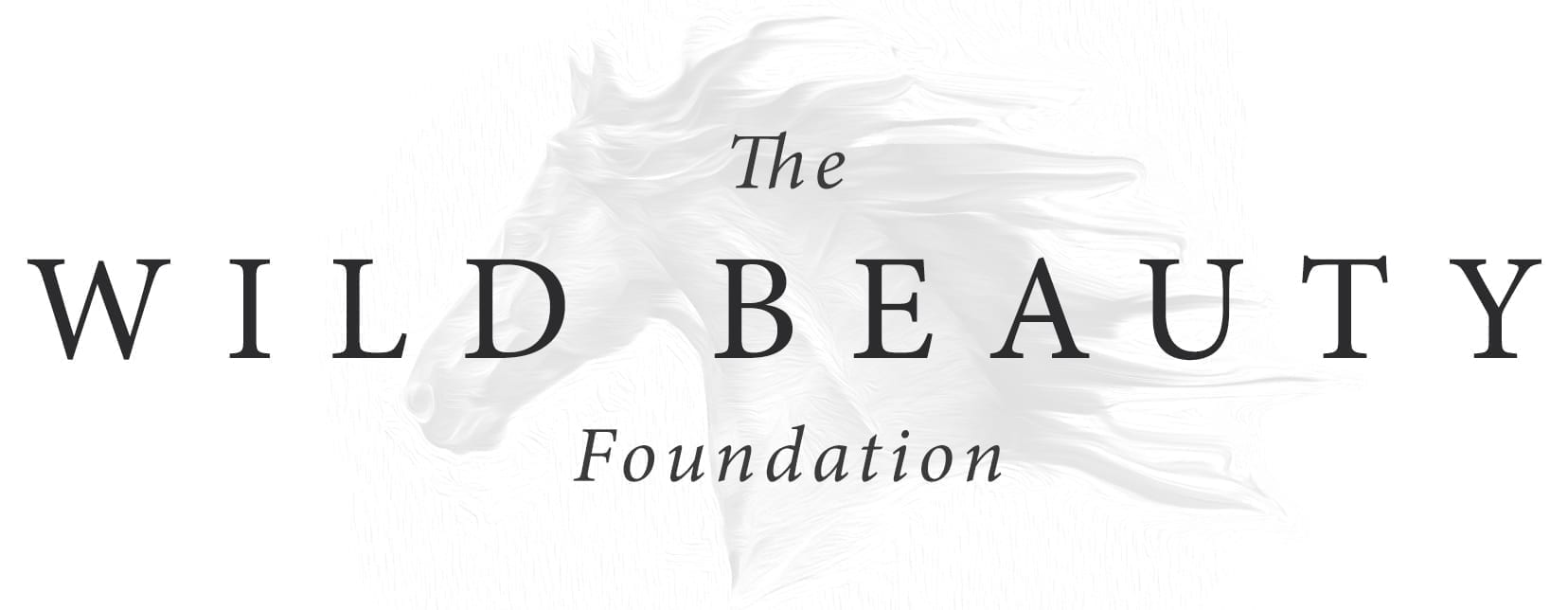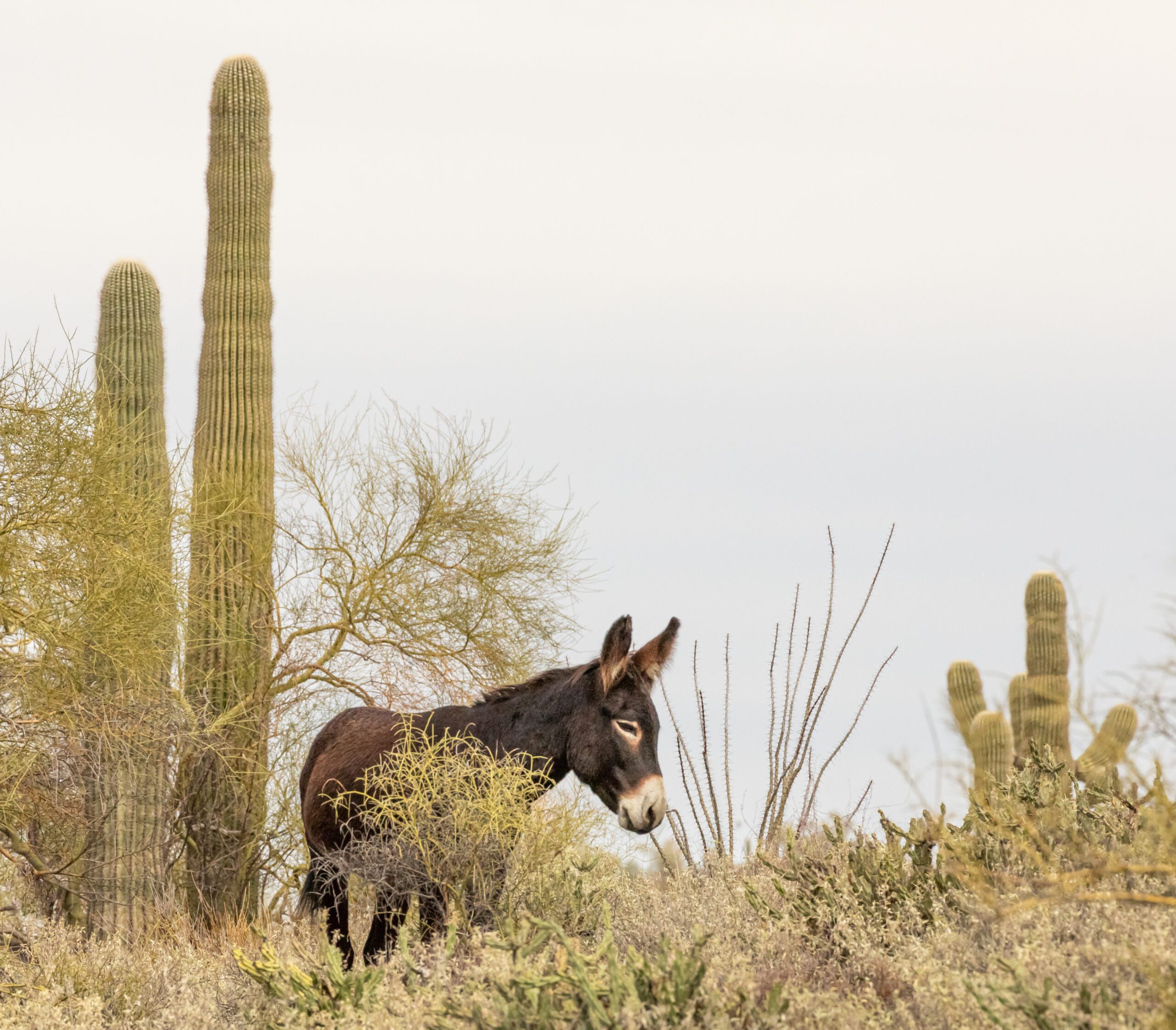THIS WEEK IN WILD BEAUTY: November 5th, 2022
The Wild Beauty Foundation welcomes you to the twenty fifth edition of our weekly newsletter!
Read the newest wild horse and burro focused headlines for the week of November 5th, 2022
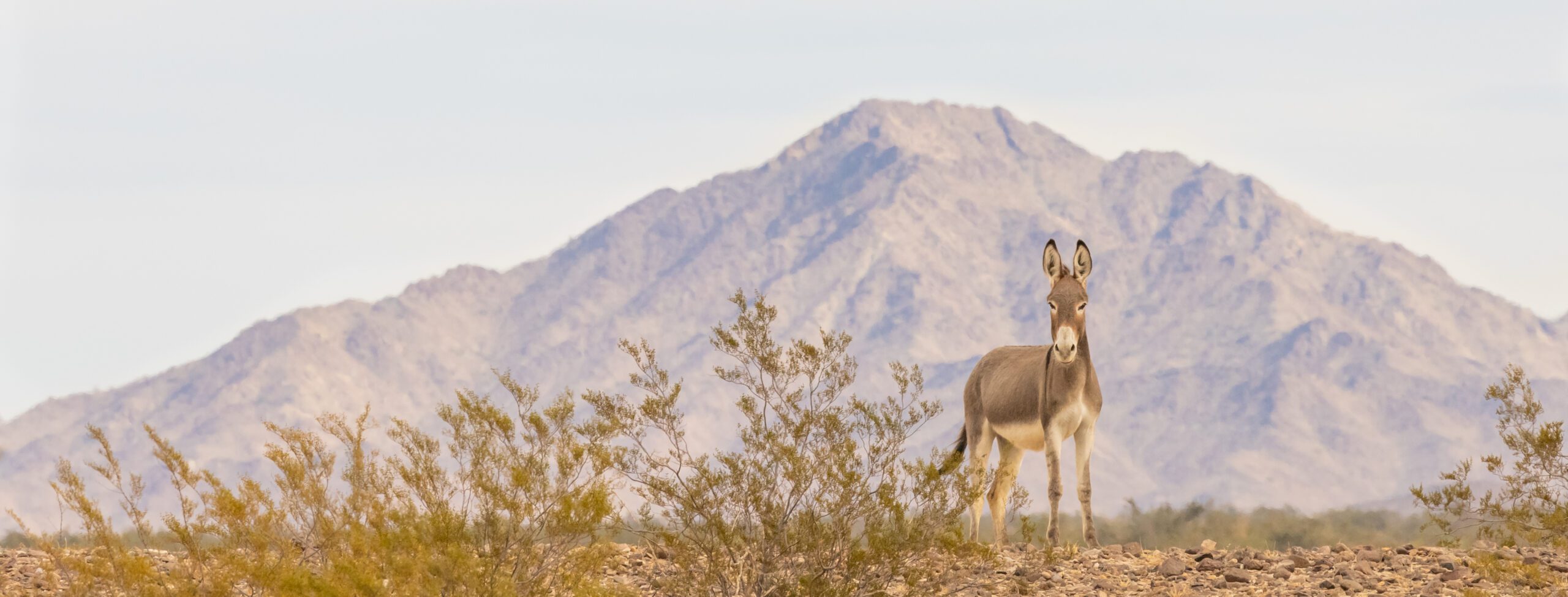
It’s #IStandWithWildBurros Week!
While our nation’s wild horses usually take center stage, there is another special wild equine who deserves to share the spotlight; the wild burro!
Small but mighty, the wild burro has thrived in the deserts of the American west for hundreds of years. The species, originating in Africa, was brought to America by the Spanish in the 1500s. Since then, donkeys have helped build our country into what we know it as today. Particularly during the gold rush, these animals were used for transportation across the arid landscape of the American deserts as prospectors and their families flocked west in search of gold.
It is important to note that once a wild burro loses its wild status, it becomes a donkey.
This includes wild burros impacted by government roundups today. Immediately following removal by the BLM, our nation’s wild beauties become mere numbers of the global donkey population. Unfortunately, this can put them at risk of inhumane trade markets, like the Ejiao industry, overseas.
Wild burros and donkeys are incredibly intelligent creatures, and due to this, are often stereotyped as stubborn. However, these animals focus on the safety of themselves and those around them by choosing to walk a fine line between curiosity and concern. They rely on natural instinct to prioritize their responses, leading them simply to not do what they sense could lead to a dangerous outcome. Donkeys are also great protectors, making them the perfect companion for a horse or a herd of livestock.
Surprisingly, donkeys can tolerate water loss up to 30% of their own body weight; this is compared to the 10% that humans can face before extreme dehydration occurs. Additionally, these animals have a great digestive system that can process the rough vegetation of the desert without complication. Subsequently, wild burros of the American west thrive in their environments, as they were naturally built to survive in these arid landscapes.
Donkeys are truly amazing creatures, and they need our attention more than ever. We at WBF advocate for American wild burros and our global donkey population, and we hope you will too. These incredible animals need our voices to champion for their protection.
Do you stand with wild burros?
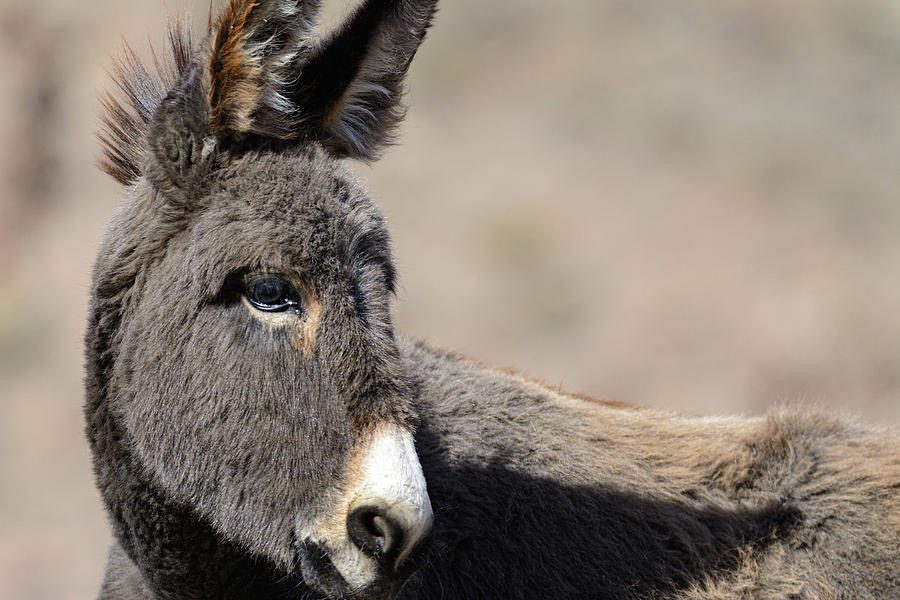
Growing Ejiao Market Puts Wild Burros at Risk
Quiet, patient, and gentle — few domestic animals are more charming or have occupied a more practical role in human civilization than the donkey. But did you know millions of donkeys are slaughtered annually to produce a product called ejiao?
The demand for ejiao, a gelatin made from boiled donkey hide, is rapidly increasing in countries like China and Africa. The ejiao market is leading to the decimation of the global donkey population. This inhumane industry puts our wild burros at risk of being rounded up and sold to potential kill buyers looking to make profit overseas.
Ejiao is used in cosmetic products and for medicinal uses that, despite scientifically unproven, are said to treat dizziness, insomnia, and dry cough. Studies show that gelatins manufactured from ejiao are unnecessary in the production of these products, as ingredients from other sources such as plants, can be used instead.
Last year, congressman Don Beyer of Virginia introduced the Ejiao Act (H.R. 5203) that would prohibit the sale or transport of ejiao in interstate or foreign commerce. This bill would allow the donkey population to heal and take first steps to end the trade of ejiao for good.
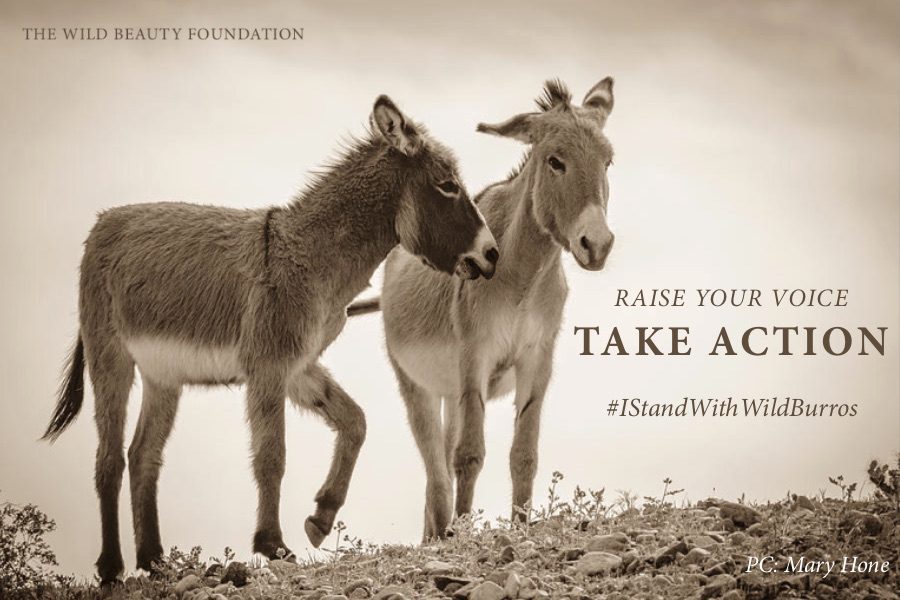
This Week’s Call To Action
Write your Members of Congress and Urge them to Support H.R. 5203 aka “The Ejiao Act”
The Ejiao industry is threatening our global donkey population, and our American wild burros are being put at risk. Contact your local members of Congress and urge them to support The Ejiao Act and the protection of donkeys and wild burros.
You can send a letter directly through our Call to Action by clicking the “Take Action” button below. This form will send a pre-written email to your local members of Congress, educating them on the importance of shutting down the trade of Ejiao and urging them to support that the bill is passed into law. We encourage you to add your own comments to this email to personalize it before sending.
You can also share this important cause with your friends on social media by using the hashtag, #IStandWithWildBurros .
We must not forget to love and advocate for these beautiful equines.
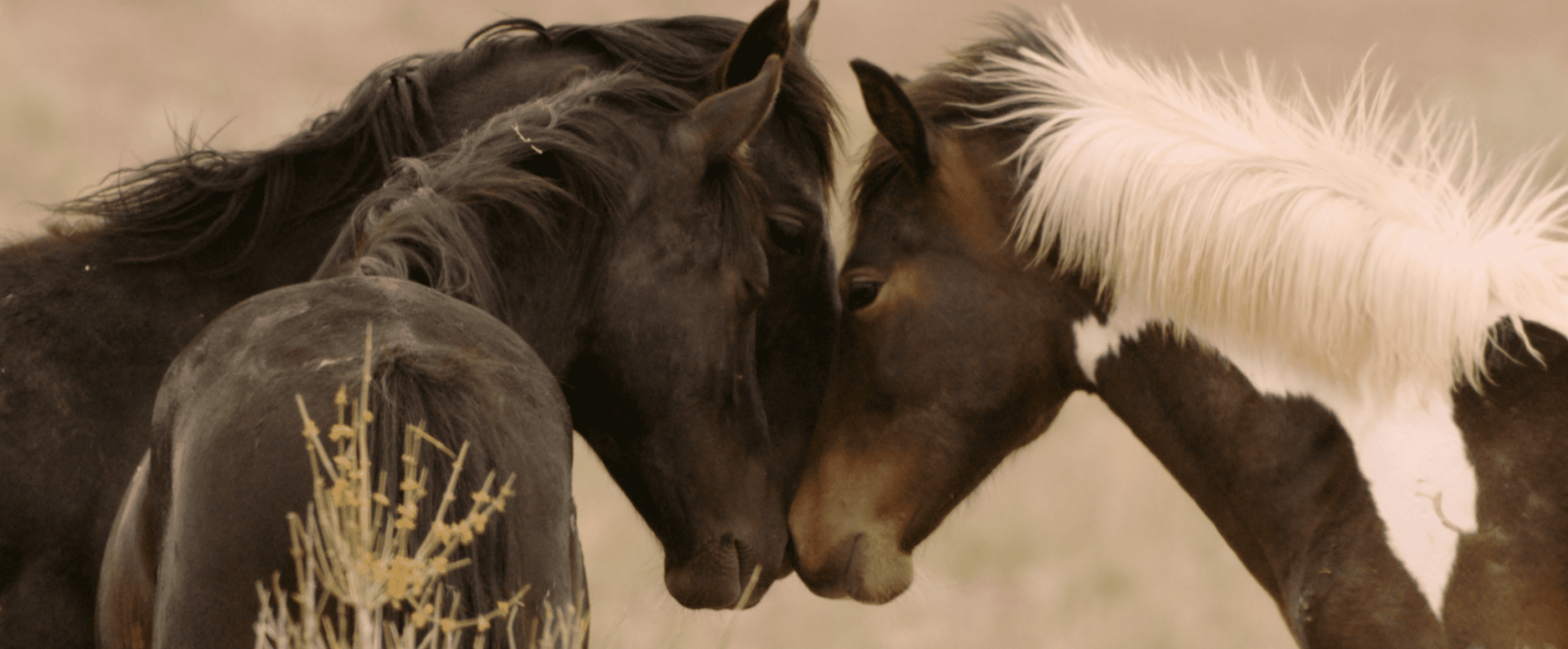
A Still from upcoming documentary, Wild Beauty: Mustang Spirit of the West
Wild Beauty to Screen at St.Louis International Film Festival
If you are in the St.Louis area, be sure to secure your tickets to Wild Beauty: Mustang Spirit of the West, screening at the St.Louis International Film Festival! Wild Beauty premieres on Monday, November 7th at 2:30 at the Plaza Frontenac Cinema.
You can order in-person tickets, here.
We are extremely proud to bring our documentary to audiences in Missouri and show them the beauty and strength of wild horses in the American west. We hope that by bringing the plight of these animals to screens across the country, we will grow the wild horse advocacy community and bring insight to those who may not know the struggles that wild horses are facing. As Wild Beauty continues its film festival run, keep an eye on our website and social media platforms; new dates and locations are being announced often!
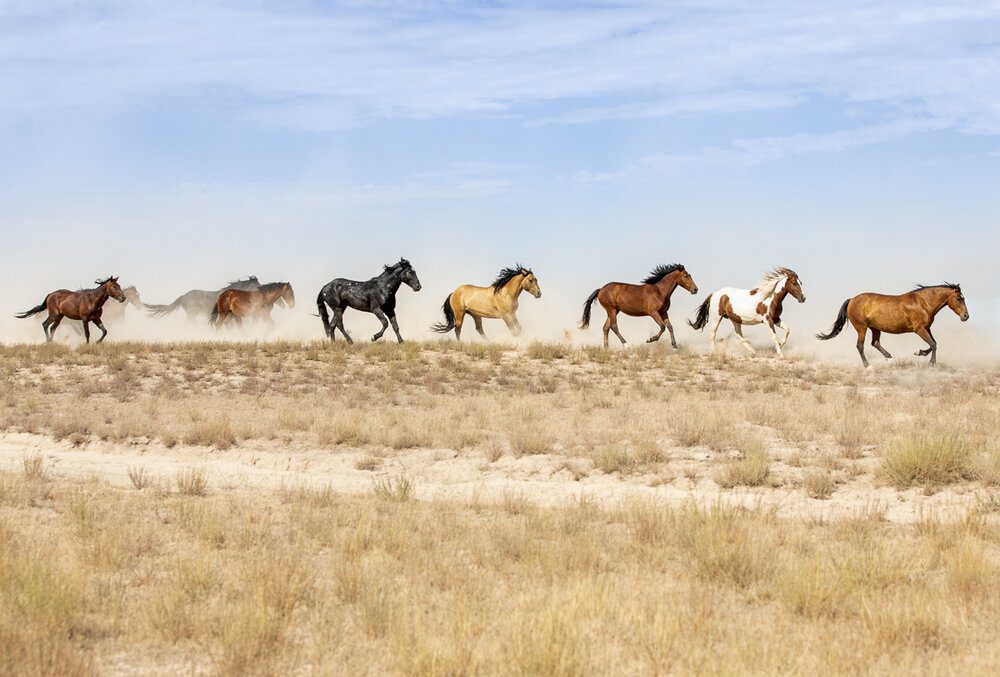
Fifty Triple B Mares Treated with Fertility Control Released
This week, 50 mares from the Triple B complex were released back into the wild after being treated with two doses of GonaCon fertility control treatment. The BLM captured 1,897 horses from this complex this summer during a roundup ending on August 25. Now, some selected mares have been given their freedom back.
The BLM faced considerable backlash as a result of 23 wild horse deaths during the roundup efforts. Sadly, many deaths were from very young foals forced to run for miles due to low flying helicopters chasing them to exhaustion. Several other deaths occurred from broken necks as horses fought to escape the traumatizing gather pens, and from BLM euthanasia due to blindness, old age, and other non-life threatening reasons. This is heartbreaking, as these horses deserved to live out the rest of their lives, no matter how long that may be, wild and free.
The fertility control method that these mares were treated with is highly controversial, as it has been scientifically proven to shrivel ovaries, leading to permanent infertility. This irreversible sterilization is promoted as “reversible fertility control” by the BLM, though scientists and veterinarians maintain otherwise. It is unknown if these wild mares will be able to reproduce again, though we hope that they do not fall victim to the irreversibility of this treatment.
Despite regaining their freedom, these mares have lost their close family members and overall band structures. They are now left without stallions and young foals that provide a diverse herd dynamic within the range. We must hold the BLM accountable for tracking the location of where these mares were captured and urging that they release them back into their home area so that they have a chance of reuniting with lost family members.

WBF’s 2nd Annual Short Story Contest’s Equine-Loving Celebrity Reader: Avianah Abrahams
Joining us this year for our Second Annual Short Story Contest as an Equine-Loving Celebrity Reader is young actor Avianah Abrahams!
Born in South Africa, Avianah Abrahams is best known for her role as Anna Sewell in 2020’s Black Beauty for Disney+. She continues to collect acting credits, most recently as young Claire in Escape Room 2: Tournament of Champions and Caitlyn in the tv series, Lioness.
We are delighted to have Avianah read one of our winning stories this year and thank her for lending her voice to this competition and the protection of wild horses.
Submit your writings soon; the final deadline has been extended to November 15th, 2022!
Don’t wait! The deadline to enter our Short Story Contest is only a couple weeks away! Submit your short stories now so they can be considered by our wonderful panel of judges.
To learn more about the short story contest or submit your entry, visit our website!
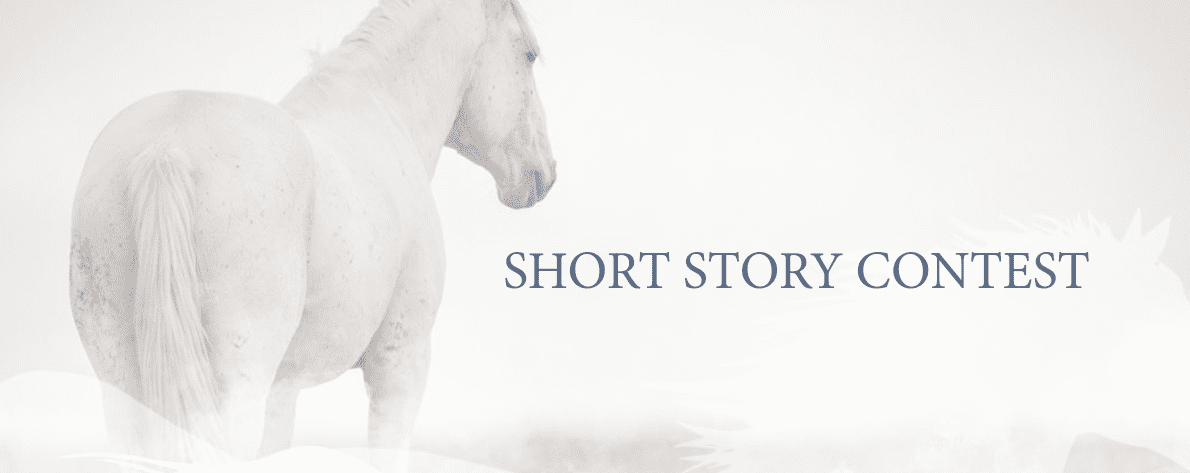
Less than Two Weeks Left to Submit your Short Stories!
We have been receiving many wonderful submissions to our 2nd annual Short Story Contest over the last few weeks. Don’t wait! All entries must be submitted by the extended deadline, November 15th, 2022 to be considered. We cannot wait to read your creative stories about wild horses, and look forward to them being read aloud by equine-loving celebrities as we announce the winners!
Our 2022 Short Story Contest theme is “Connection & Wild Horses”. In order to give your writing authenticity, we encourage you to do your research on their family dynamics and interactions. You can find great information on our “Issues at Hand” page, here. The creative possibilities are endless and we wish you all good luck as you finish writing your stories!
Winning stories will be read aloud by one of our amazing equine loving celebrities from tv shows and movies such as Black Beauty, Heartland, and many more! We also have a selection of exciting wild horse themed prizes for our grand prize winners and finalists, featuring books, jewelry, art, and gift boxes from our wonderful friends in the wild horse world!
We at WBF thank you for standing with wild horses and using your creativity to champion for their protection. The next generation is essential in keeping our wild horses free for years to come.
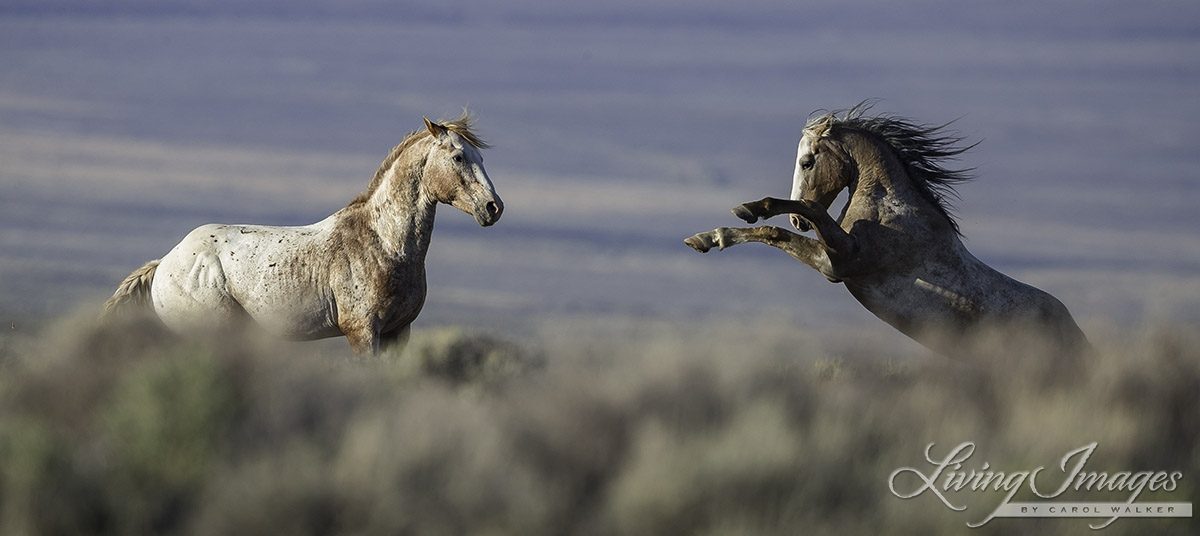
Stone Cabin Wild Horse Complex Environmental Assessment Continues to Accept Public Comments
The BLM is still accepting public comments on the environmental assessment proposed for the Stone Cabin Complex outside of Nye, Nevada. You can find the BLM’s full press release here. We urge you to submit your comments so voices of wild horse advocates can be considered.
This complex is home to approximately 930 wild horses, and according to this assessment the BLM would reduce the complex down to only 404 wild horses total. There is over 542,000 acres of public land within this complex, which is more than enough land for upwards of 400 horses. WBF supports that the BLM’s “Appropriate Management Levels” are not based on science and most favor the desires of special interests, such as livestock grazing. We cannot let these special interests control how wild horses are managed and protected on our public lands. Those lands are for everyone to enjoy, not profit by large corporations.
This Environmental Assessment also proposes the use of fertility control methods such as gelding stallions and implementing IUDs for mares, which are irreversible and potentially damaging to natural dynamics of the herd. We believe that any fertility control methods used on the range must be scientifically tested and proven to be reversible, in order to prevent a complete eradication of wild horse populations across our west.
To submit a public comment to the BLM concerning this assessment, visit their eplanning site here.
Additionally, you can send a written comment to:
Tonopah Field Office
P.O. Box 911
1553 South Main Street
Tonopah, NV 89049
or an email with “Stone Cabin Complex EA” in the subject line to:
The public review and comment period is open until November 23rd, 2022. We urge those passionate about protecting wild horses to contact the BLM and express their thoughts regarding this assessment. Data and information is highly encouraged to be included. We thank you, wild horses thank you. #IStandWithWildHorses
Glimpse of Wild Beauty
Chad Hanson captures a glimpse of pure wildness as a wild burro finds safety within the cacti of the Sonoran Desert.
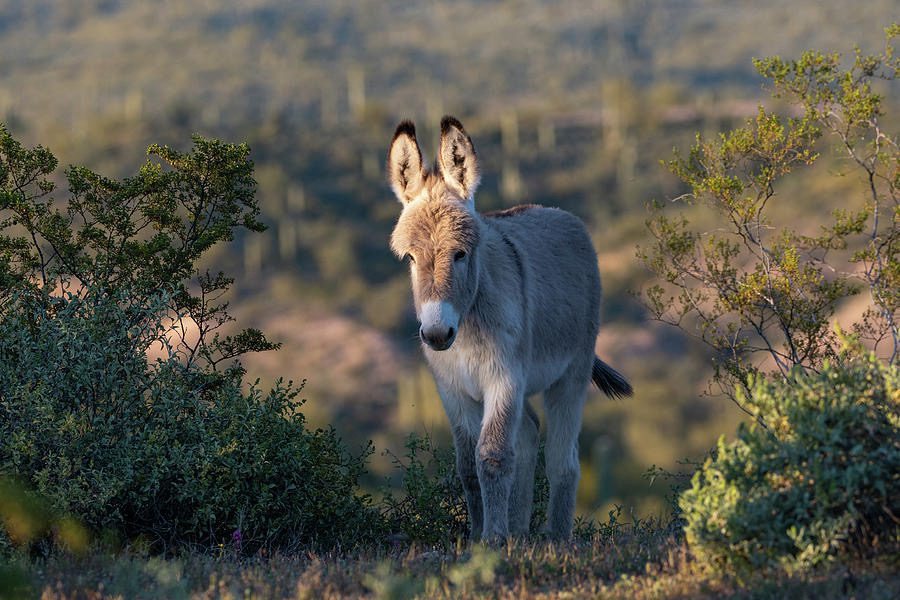
A Quote to Graze On
“A little consideration, a little thought for others, makes all the difference.”
–Eeyore (A.A. Milne)
This week we honor and celebrate our nation’s wild burros. These lasting symbols of the construction of the American west deserve our appreciation. Stand with WBF, and stand with these magical equines by urging your members of congress to pass the Ejiao Act and by sharing the story of wild burros with your friends by using #IStandWithWildBurros.

Thank you for being a supporter of wild horses, and protecting the wild beauty of our world.
– The WBF Team
#istandwithwildhorses #wildbeautyspirit
Have an idea for a story or a tip for us?
Email [email protected]
Are you a wild horse photographer who would like your work featured in our newsletter or social media pages?
Email a ZIP or link to your photos, along with a short written approval to [email protected]!
Join Us On Our Journey. We’d love to stand beside you.
WBF Facebook
www.facebook.com/wildbeautyfoundation
WBF Instagram
www.instagram.com/wildbeautyspirit
WBF Twitter
www.twitter.com/wildbeautyorg
